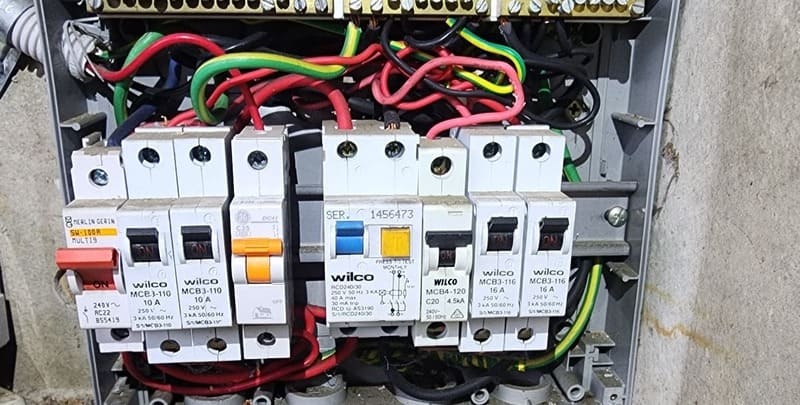
The Pros and Cons of Whole House Surge Protectors
It's hard to imagine losing all your sensitive electronics and appliances to a single power surge, isn't it? Power surges can wreak havoc on your household's electrical equipment, potentially causing significant damage to valuable devices and appliances.
One solution to safeguard your entire house against surges is whole house surge protectors. But are they really worth it?
In this blog post, we’ll explore both the pros and cons of whole house surge protectors to help you make an informed decision.
What is a Whole House Surge Protector?
A whole house surge protector is a surge protection device directly wired to your distribution board, designed to protect your entire house from power surges.
They are specifically engineered to absorb extra voltage caused by lightning strikes, small power surges, mini surges, or any other event that may introduce a sudden increase in voltage in your power lines.
The Pros of Whole House Surge Protectors
Equipped with a basic understanding of how house surge protection works, it’s time to explore its pros and cons.
Let’s start with the pros:
- Comprehensive surge protection: By installing a whole house surge protector, you’ll provide a much-needed layer of defence against power surges. This protection extends not just to sensitive electronics like computers, televisions, and gaming consoles, but also to electrical appliances such as your dishwasher, washing machine, and fridge.
- Protection for both small and large power surges: Whole house surge protectors are capable of handling both large and smaller surges that may go unnoticed, but ultimately cause wear and tear on your electrical devices. Protecting against these small, unnoticed surges, can extend the lifespan of your electronic devices and potentially save you money in the long run.
- Reduced risk from lightning strikes: While whole house surge protectors can’t completely shield your home from a direct lightning strike, they do help to significantly reduce the impact of distant lightning strikes on your home’s electrical equipment. With the majority of electrical surges caused by lightning, it makes sense for homeowners living in lightning-prone areas to consider investing in whole house surge protection.
- Protection during voltage spikes: Whole house surge protectors offer protection during voltage spikes. When the surge protection device senses an electrical surge, it redirects this harmful extra voltage away from your household appliances, thus protecting them from potential damage.
- Extended device lifespan: Whole house surge protectors can substantially extend the lifespan of appliances and devices in your home. By absorbing or diverting power surges, they reduce the stress caused by voltage fluctuation on your electrical equipment. This results in a healthier electrical environment and a longer life for your appliances and devices.

The Cons of Whole House Surge Protectors
No matter how excellent these whole house surge protectors are, there are a few considerations that you need to think of.
Now onto the cons of whole house surge protection:
- Not a standalone solution: While whole house surge protectors provide comprehensive protection against power surges, they should not be solely relied upon. Combining them with power strip surge protectors for electronics that are more sensitive to voltage fluctuations, such as computers, televisions, and sound systems, can offer an additional layer of protection.
- Does not protect against power outages: Whole house surge protectors are specifically designed to protect your home from power surges, but not power outages. They will not keep your electrical devices functioning during a power outage, and they won’t protect against sudden voltage drops.
- Surge capacity limitations: One potential drawback is that every surge protection device, including whole house surge protectors, has a limit to how much energy it can absorb. Once this capacity has been exceeded, the device may fail, and you may need to replace it.
- Cannot protect against severe surges: A surge protector, even one designed for the whole house, cannot protect against all power surges. For instance, the destructive surge from a lightning strike directly hitting your home is too great for any surge protector to manage.
- Upkeep is needed: Just as with any electronic device, a whole house surge protector can degrade over time, especially if it is often triggered. This calls for occasional replacement and the regular checking of performance are additional upkeep tasks for homeowners to consider.
Is a Whole House Surge Protector Worth It?
The decision to invest in a whole house surge protector will depend on several factors, including the number of electronic devices and electrical appliances you have in your home, the cost of replacing those items, and the frequency of power surges in your area.
If you live in a region with frequent lightning strikes and power surges, having a whole house surge protector could provide peace of mind and protect your valuable electronic devices from potential damage.

Do I Need Surge Protection at Home?
Considering the increasing reliance on electronic devices in our everyday lives, it’s essential to take precautions to protect our investment in these devices.
By evaluating the mentioned pros and cons and assessing your requirements, you can make an informed decision about choosing the right surge protection devices for your home.
Please note: This information is provided for advice purposes only. Regulations differ from state to state, so please consult your local authorities or an industry professional before proceeding with any work. See our Terms & Conditions here.